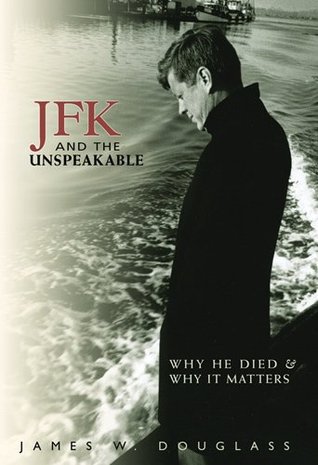More on this book
Community
Kindle Notes & Highlights
Read between
February 17 - March 14, 2021
In his preface to the letters, Merton identified the forces in the United States that threatened a nuclear holocaust: “In actual fact it would seem that during the Cold War, if not during World War II, this country has become frankly a warfare state built on affluence, a power structure in which the interests of big business, the obsessions of the military, and the phobias of political extremists both dominate and dictate our national policy. It also seems that the people of the country are by and large reduced to passivity, confusion, resentment, frustration, thoughtlessness and ignorance, so
...more
So it was natural for John Kennedy to speak at American University with empathy about the suffering of the Soviet Union. “No nation in the history of battle ever suffered more than the Soviet Union suffered in the course of the Second World War,” he said. “At least 20 million lost their lives. Countless millions of homes and farms were burned or sacked. A third of the nation’s territory, including nearly two thirds of its industrial base, was turned into a wasteland—a loss equivalent to the devastation of this country east of Chicago.”
What is unrecognized about JFK’s presidency, which then makes his assassination a false mystery, is that he was locked in a struggle with his national security state. That state had higher values than obedience to the orders of a president who wanted peace. The defeat of Communism was number one.
On March 13, 1962, the chairman of the Joint Chiefs of Staff, whom Kennedy inherited from Eisenhower, General Lyman L. Lemnitzer, proposed such a secret victory plan to Defense Secretary Robert McNamara.
It was called “Operation Northwoods.”
“1. . . . Harassment plus deceptive actions to convince the Cubans of imminent invasion would be emphasized.
“2. A series of well coordinated incidents will be planned to take place in and around [the U.S. Marine base at] Guantanamo to give genuine appearance of being done by hostile Cuban forces.
“3. A ‘Remember the Maine’ incident could be arranged in several forms: We could blow up a US ship in Guantanamo Bay and blame Cuba. We could blow up a drone (unmanned) vessel anywhere in the Cuban waters. We could arrange to cause such incident in the vicinity of Havana or Santiago as a spectacular result of Cuban attack from the air or sea, or both.
General Lemnitzer’s next recommendation in “Operation Northwoods” went even more deeply into deception and internal subversion. He urged the Secretary of Defense to support a campaign of terrorism within the United States as a necessary evil in overcoming Communist Cuba:
“4. We could develop a Communist Cuban terror campaign in the Miami area, in other Florida cities and even in Washington. The terror campaign could be pointed at Cuban refugees seeking haven in the United States. We could sink a boatload of Cubans enroute to Florida (real or simulated).
Kennedy had finally had enough of Lemnitzer. In September 1962 he replaced him as chairman of the Joint Chiefs of Staff. However, Lemnitzer was not alone in his beliefs. He claimed that his terrorist “Operation Northwoods” had been backed by the entire Joint Chiefs.
They thought it was Kennedy, not themselves, who had gone off the deep end. The future of the country was in their hands. For the CIA and the Joint Chiefs, the question was: How could Kennedy’s surrender to the Communists be stopped in time to save America?
In their world of victory or defeat, JFK’s decision to withdraw from Vietnam was the last straw.


